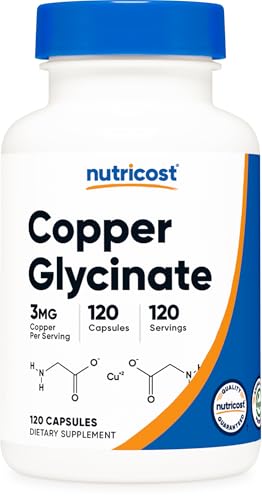Copper for Heart Health? New HCM Study Explored
Quick Summary: Researchers are studying a drug called trientine to see if it can help people with hypertrophic cardiomyopathy (HCM), a heart condition. The study aims to see if trientine, which reduces copper in the body, can improve heart function and reduce heart muscle thickening.
What The Research Found
This study, called TEMPEST, is looking at how a drug called trientine might help people with HCM. HCM causes the heart muscle to thicken, making it harder for the heart to pump blood. Trientine works by removing excess copper from the body, which can contribute to heart damage. The researchers hope trientine will reduce heart muscle thickening, improve heart function, and make it easier for people with HCM to exercise. The study is still ongoing, so we don't have the final results yet.
Study Details
- Who was studied: People diagnosed with HCM, according to specific guidelines, and who had mild to moderate symptoms.
- How long: The study will last for 52 weeks (about a year).
- What they took: Participants were randomly assigned to receive either trientine or a placebo (a dummy pill).
What This Means For You
If you have HCM, this research is looking at a new potential treatment option. It's important to remember that this is an ongoing study, and the results aren't available yet. Always talk to your doctor about the best way to manage your heart condition. This study does not suggest that copper supplements are a treatment for HCM.
Study Limitations
- Early Stage: This is a Phase II study, which means it's still early in the research process.
- Specific Group: The study focuses on people with mild to moderate HCM symptoms.
- Long-Term Effects Unknown: The study lasts a year, so we don't know the long-term effects of trientine.
- No Copper Levels: The study doesn't measure copper levels at the start, so it's hard to know how much copper is affecting the results.
- Results Pending: The study is still in progress, so we don't have the final results yet.
Technical Analysis Details
Key Findings
This phase II trial (TEMPEST) aims to evaluate the efficacy and mechanisms of trientine, a selective copper II chelator, in patients with hypertrophic cardiomyopathy (HCM). Based on prior preclinical and open-label studies, trientine is hypothesized to reduce left ventricular hypertrophy (LVH), fibrosis, and improve mitochondrial function. The primary outcome is change in LV mass indexed to body surface area (BSA) after 52 weeks. Secondary outcomes include improvements in exercise capacity, arrhythmia burden, cardiomyocyte injury, and LV/atrial function. Mechanistic goals focus on cellular/extracellular mass regression and myocardial energetics. Results are pending as of the 2023 publication date.
Study Design
The TEMPEST trial is a multicenter, double-blind, placebo-controlled RCT with 1:1 randomization. It enrolled patients with HCM per European Society of Cardiology guidelines and NYHA class I-III symptoms. The intervention duration is 52 weeks, with cardiovascular magnetic resonance (CMR) as the primary assessment tool. Trial registration: NCT04706429 and ISRCTN57145331.
Dosage & Administration
The study protocol specifies trientine administration but does not detail dosage in the abstract. Participants receive either trientine or a placebo in a double-blind design, with dosing frequency and duration aligned to the 52-week trial period.
Results & Efficacy
No quantitative results are reported in the provided summary, as the study was ongoing at the time of publication. The trial aims to detect statistically significant differences in LV mass index (primary outcome) and secondary endpoints like exercise capacity (6-minute walk test) and LV outflow tract gradient reduction. Mechanistic analyses will assess fibrosis markers (e.g., extracellular volume on CMR) and myocardial energetics via phosphocreatine/adenosine triphosphate ratios.
Limitations
- Phase II Design: Focuses on mechanistic insights and preliminary efficacy rather than long-term clinical outcomes.
- Sample Demographics: Specific to NYHA class I-III patients; results may not generalize to severe HCM (class IV) or asymptomatic cases.
- Placebo-Controlled but Short Duration: 52 weeks may insufficiently capture chronic effects or safety profiles.
- Lack of Baseline Copper Data: The study does not specify whether unbound copper levels were measured at baseline, limiting direct correlation between copper chelation and outcomes.
- Pending Results: Conclusions are provisional until trial outcomes are published.
Clinical Relevance
This trial explores copper II chelation as a novel therapeutic approach for HCM, targeting oxidative stress and mitochondrial dysfunction. If effective, trientine could offer a repurposed treatment for HCM patients, though it is not a dietary supplement and requires medical supervision. The study does not address copper supplementation or dietary copper intake but highlights the potential harm of excess unbound copper in cardiac pathology. For supplement users, this underscores the importance of copper homeostasis, though trientine itself is a pharmaceutical agent, not a nutritional intervention. Future results may inform targeted therapies for HCM but should not be interpreted as evidence for copper supplementation or over-the-counter chelation strategies.
Note: This analysis reflects the study design and rationale only; definitive conclusions await trial results.
Original Study Reference
Rationale and design of a randomised trial of trientine in patients with hypertrophic cardiomyopathy.
Source: PubMed
Published: 2023
📄 Read Full Study (PMID: 37137675)




